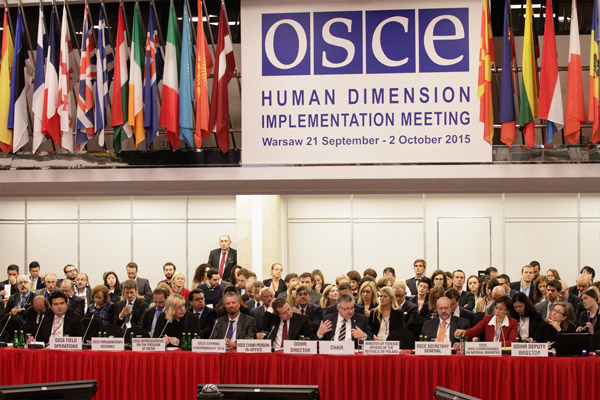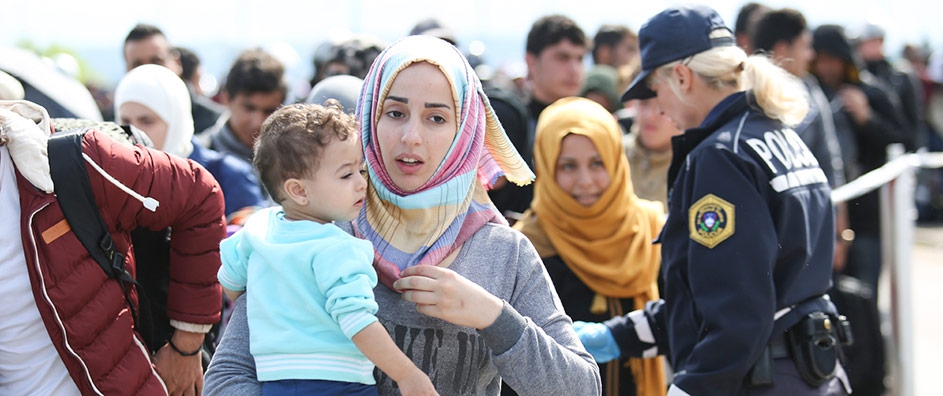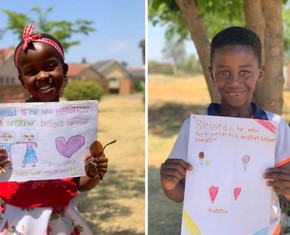We trust that in a time to come the slumberers will waken, and the heedless will be made aware, and the excluded will become initiates in the mysteries. Now must the friends work on with heart and soul and put forth a mighty effort, until the ramparts of dissension are toppled down and the glories of the oneness of humanity lead all to unity.
Today the one overriding need is unity and harmony among the beloved of the Lord, for they should have among them but one heart and soul and should… unitedly withstand the hostility of all the peoples of the world; they must bring to an end the benighted prejudices of all nations and religions and must make known to every member of the human race that all are the leaves of one branch, the fruits of one bough. – Abdu’l-Baha, Selections from the Writings of Abdu’l-Baha, p. 277.
Baha’is everywhere, and the international Baha’i community itself, want to make the world safe and welcoming for refugees.
That’s one of the reasons the Brussels Office of the Baha’i International Community (BIC) recently participated in Europe’s largest annual human rights and democracy conference—the Human Dimension Implementation Meeting (HDIM). The event, sponsored by the Organization for Security and Cooperation in Europe (OSCE), took place from 21 September until 2 October in Warsaw, Poland.

Opening session of the Human Dimension Implementation Meeting 2015 in Warsaw on 21 September. (Photo by OSCE/Piotr Markowski)
Fifty-seven countries from among the OSCE states joined a number of other agencies—including OSCE structures, civil society organizations and faith groups—to address issues of discrimination, prejudice and exclusion.
The conference’s session on tolerance and non-discrimination, which dealt in particular with combating racism and xenophobia, focused on prejudice and discrimination against religious communities. OSCE-participating States had previously committed to the prevention of such intolerance and discrimination by “encouraging the development of comprehensive domestic education policies” as well as “through increased awareness raising measures.”
During the session, Rachel Bayani, a representative of the Baha’i International Community, encouraged the OSCE to explore how educational processes and capacity-building endeavors can reinforce the collective awareness of humanity’s oneness, especially among the youth and younger generations.
In her comments, Ms. Bayani said that “intolerance and discrimination essentially are manifestations of a tendency to identify narrowly with certain social, cultural, physical or other such characteristics and place them at the center of our understanding of self.”
“In order to help prevent such narrow identifications, there is a need to search for ways to strengthen the collective awareness of humanity’s underlying oneness and to broaden the understanding of our primary over-arching human identity,” she continued.
Another conference session—on freedom of thought, conscience, religion or belief—provided an opportunity to examine existing challenges to the full exercise of the oneness of humanity in Europe. Participants discussed the means by which all relevant actors, including religious communities, can work together in order to address these challenges.
Ms. Bayani said that the promotion of the right to freedom of religion or belief needs to go hand in hand with a deeper understanding of how religion contributes to the advancement of society.
“It is not surprising that perceptions of how religion contributes to society tend to get clouded, given some destructive expressions of religious belief that appear throughout the world and in Europe today,” she stated.
“There is a need to start a collective process of identifying a framework that will allow the constructive powers of religion to find expression. The Baha’i International Community encourages the OSCE to start a process of exploring how religion, its principles, its concepts and its insights, contribute to resolving conflict, to facilitating greater social harmony and to creating stable and peaceful societies.”
















Comments
Sign in or create an account
Continue with Googleor